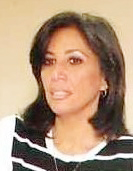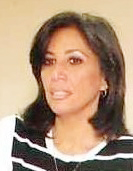 Bassem Youssef, host of the satirical TV show “Al Bernameg” (The Program) faces investigation after a lawyer filed a complaint earlier this week, accusing him of insulting President Mohamed Morsy. The case against Youssef is the latest in a series targeting journalists and bloggers in recent months, threatening to undermine freedom of expression in the “new” Egypt.
Bassem Youssef, host of the satirical TV show “Al Bernameg” (The Program) faces investigation after a lawyer filed a complaint earlier this week, accusing him of insulting President Mohamed Morsy. The case against Youssef is the latest in a series targeting journalists and bloggers in recent months, threatening to undermine freedom of expression in the “new” Egypt.
Youssef, popularly dubbed the Middle East’s Jon Stewart, had allegedly poked fun at the President on his weekly TV show broadcast on the independent channel CBC. He appeared on the show hugging a cushion with the president’s picture printed on it, also criticizing statements made by President Morsy in an interview broadcast on Egyptian State Television some days earlier.
In the interview, Morsy had called on Egyptians to unite and show greater tolerance towards one other at a time of deep polarization, which shortly followed the controversial constitutional declaration that gave him absolute judicial powers.
Youssef said that the only person impressed by the President’s statements was his one-year-old daughter Nadia who appeared on the show cooing in delight. He took the news of his investigation lightly, responding on his Twitter account with his trademark humour, asking the President to “kindly sign the cushion for little Nadia.”
The complaint against Youssef was filed a day after preliminary results showed that Egypt’s Islamist-backed constitution had passed by a sixty four percent majority yes-vote in a popular referendum. Human Rights advocates had warned earlier, that the controversial document–Egypt’s first charter, post- revolution— threatens to undermine women’s rights, freedom of the press and religious freedom.
While freedom of the press is “guaranteed” by the new constitution, many journalists and rights advocates are concerned about provisions banning blasphemy and potential limitations on press freedom “in times of war and national mobilization.” Critics say that this may open the door to heavy-handed government control during times of civil unrest. Another self-contradictory article stipulates that media organizations cannot be shutdown, nor their publications confiscated—unless with a court order.
Furthermore, a proposal by members of the Press Syndicate for an article stating that media be governed by popular authority was rejected by the Islamist-dominated Constituent Assembly on grounds that the state only recognizes the legislative, judicial, and executive authorities.
Meanwhile, similar complaints of insulting the president were filed by the presidency this week against journalists Khaled Salah and Ola El Shafei, both of whom have been summoned for questioning by the Cairo Appeals Court.
El Shafei faces investigation for her article published in the privately-owned, Youm El Sabae, newspaper (of which Salah is editor-in-chief) earlier this month on the recent violent clashes that took place outside the presidential palace in Heliopolis.
She wrote that “those who were beaten, terrorized, and injured on the streets were more honourable than those who repeat slogans about legitimacy without understanding their real meaning.” Shafei was referring to President Morsy, who had repeatedly stressed the importance of “democratic legitimacy” in his speeches following the clashes outside the palace.
El-Shafei also criticized Morsy, saying that “Presidents do not kill nor destroy the dreams of youths. They also do not send their militias onto the streets.”
On hearing of the case against her, El Shafei counter- accused the president of “using repressive tactics to silence his opponents and of cracking down on the media like his predecessor.”
Earlier, complaints had been filed by Defense Attorney and former member of Islamic Jihad, Mamdouh Ismail against prominent opposition talk show host Ibrahim Issa, accusing him of blasphemy. Ismail alleged that Issa — an outspoken critic of President Morsy and the Muslim Brotherhood–had mocked verses of the Qur’aan in an episode of his show “Hona el Qahira” broadcast in November on the privately owned channel Al Qahira wal Nas.
Ismail also filed another complaint against former Intelligence Officer Major General Sameh Seif El Yazal accusing him of fomenting sectarianism and attempting to create public disorder. El Yazal had appeared as a guest on Emad Adeeb’s show on CBC on December 1, warning that a mass rally planned by Islamist supporters of President Mohamed Morsy outside Cairo University was “dangerous”.
He also claimed that the Islamists possess weapons that they were planning to use to attack opposition activists in Tahrir Square. Contrary to the allegations, the protest was peaceful and passed without incident.
Alber Saber, a Coptic Christian-turned atheist blogger, has meanwhile been sentenced to three years in prison for allegedly posting the trailer for the anti Islam film “Innocence of Muslims” on his Facebook page. He was released on bail earlier this month pending appeal of his case.
I am deeply disturbed by all of this. Even if none of the journalists and bloggers in question are convicted, it is likely that such methods of intimidation used by conservative Islamists may cause a backward slide to the restrictive media atmosphere that prevailed under ousted President Hosni Mubarak . Supporters of Hazem Abu Ismail who staged a sit-in outside the Media City for several days recently, had also tried to intimidate and threaten the TV presenters working there.
Such practices can only be counter productive . One of the key demands of the pro-reform activists who took to the streets in January, 2011 was “freedom.” The fear barrier is gone and more journalists are now standing up against censorship.
State TV presenters Hala Fahmy and Bothaina Kamel have both been taken off the air recently and are being investigated for “going out of line.” Fahmy had appeared on her show carrying a white shroud ,telling viewers that freedom of expression was under threat under Islamist rule. Kamel meanwhile went off-script on the news asking viewers to “stay tuned for the Islamist news bulletin coming up. ”
ln the transitional period , the SCAF had used similar methods of intimidation –and even threats– to silence outspoken critics in the media . Several journalists and TV talk hosts were summoned by the Public Prosecutor for questioning . That did not work. If anything, it triggered a fiercer backlash from the media.
President Morsy has promised democracy. Needless to say, without a free press , there can be no democracy.
Meanwhile, I urge fellow journalists to respect journalistic ethics. Challenging those in authority and holding government officials to account can be done with respect and by stating facts and figures—–not through bad-mouthing and fabricating lies. Regrettably, much of today’s media is sensational tabloid, and can hardly be described as professional.


